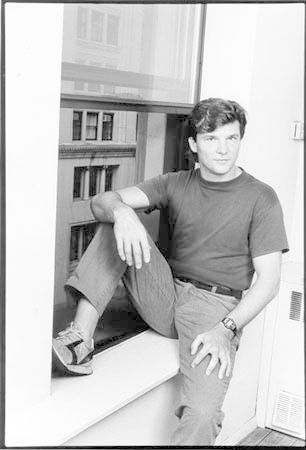The neighbors’ baby died age one month
so they’re off to Big Sur “to celebrate her life”
and I stupidly agreed to feed their dog—
a twelve year old wire-haired mix, half blind,
half dead itself, its gum lines receded to a rictus grin.
What was I supposed to say when the husband asked?
“Your baby’s dead, but I can’t be bothered.
I don’t really know you. Ask someone else.
I don’t like your dog. I think it’s hideous.
What if it dies while you’re away?
I’m supposed to call and tell you that?
I don’t want to touch it.
What if your misfortune is contagious?”
But I said “Be glad to,” and he embraced me,
this Kurt or Kirk, I’m not even sure which.
“Siobhan”—that’s his wife—“can’t stand to kennel her,”
he sobbed into my shoulder, his eye rims moistening
behind his clownish owlish oversized glasses
he knocked askew against my clavicle.
It startled me so much I couldn’t guess
who “her” referred to until I got he meant the dog.
All her’s: the dead baby, the wife, and now the dog.
I don’t like the dog. It stinks. It needs a bath.
Who washes a dog during a month like that?
But I’ll be damned if I’m going to do it—
dried dogshit or worse matted in hair
the color and texture of rusted wire
caked with rotted moldy drywall.
The dog howls all day—and I mean all day—
as if these were the feelings left inside the house.
From outside all month the house had been silent
except the one time early on the paramedics came
so the neighborhood knew a disaster was happening.
I never doubted for a moment there was wailing inside,
including the baby’s, which must have been constant.
But the dog didn’t howl until everyone was gone.
Siobhan has to be forty-something—
They supposedly did a doula water birth at home,
her husband assisting, no doctor, no amnio,
no genetic testing—I think they belong
to some megachurch where the pastor
the size of a fish stick from the bleacher seats
projects fifty feet high with his bleached teeth
and they sing-along upbeat Christian music
ten thousand strong, as loudly as they can.
“To celebrate her life”: the pastor’s phrase, I bet.
If that helps them bear it, fine.
All I know is I have their dog to deal with.
One thing I’m not doing besides wash it
is walk it, so I called a franchised service
that sent a Belarusian with a crescent nose stud
(God knows what his story is)
who rang my doorbell after half an hour.
“I can’t walk dog,” he said. “It won’t go.
It won’t leave house. I think it sick.
You better take it to vet.” So I did.
Again I picked one from the phonebook,
who charged me eighty bucks to find a loose tooth,
although he offered a thousand dollars worth of tests.
“The dog is old,” he said. Oh. Thanks.
Then I tried at home pretending the dog was mine,
actually petting it (a bit) and talking in goofy baby tones
while giving liver chips and buddy biscuits and playing fetch,
but, while I napped, it scratched off the front door paint
and started gnawing its way out.
After I gated it back in the neighbors’ kitchen
with its blanket and bowls and dried bull pizzle,
it began howling again, which is what it’s doing now.
Maybe there’s something in the house still.
Maybe tiny syringes and bandages upstairs
the dog smells. It would be too odd to go up there
where the baby was, into the baby’s room,
with the neighbors’ hopes there as furniture,
pink bunny or smiley angel or kiddie Bible wallpaper.
It would be like being inside their privacy,
their intimacy, their monthlong nightmare.
Maybe I have to call them after all.
I hate to call them—they should have peace
to grieve enough to live again in a house
that no matter what they believe or understand
will never be for one moment as they thought.
I don’t know what else to do but call them.
Their dog—their ugly old dog—is howling for them
and will not stop.
